Big Tent Container Gardening
johns.coastal.patio
9 years ago
Related Stories
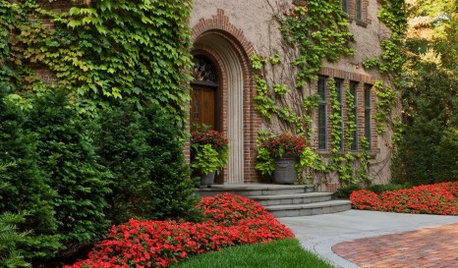
LANDSCAPE DESIGN5 Ways to Plant a Big Kiss of Red on Your Landscape
Ignite passion in your garden beds and container plantings with flowers and foliage in this dynamic color
Full Story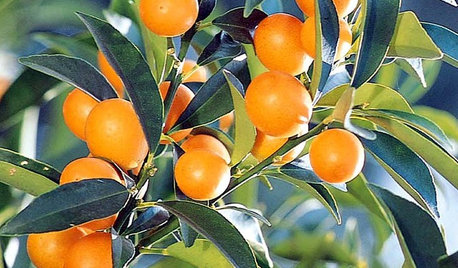
GARDENING GUIDES7 Fall Beauties for Mild-Climate Container Gardens
We're talking long-term relationship: These showy shrubs will bring color to your container garden autumn after autumn
Full Story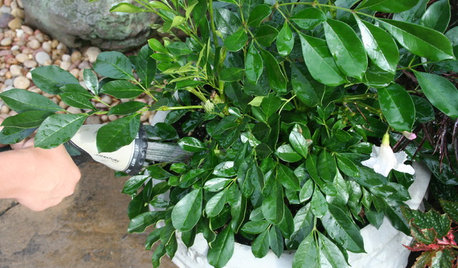
CONTAINER GARDENSContainer Garden Basics: How and When to Water Potted Plants
Confused about soil moisture, the best time to water and what watering device to use? This guide can help
Full Story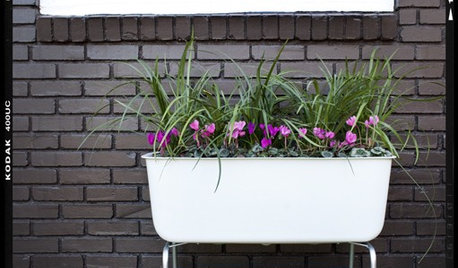
GARDENING AND LANDSCAPINGDIY Project: Mobile Container Garden
Get your garden going anywhere with a planter on wheels
Full Story
FALL GARDENING5 Fall Fruits You Can Grow in Containers
Brighten your porch or patio with a potted pomegranate, kumquat, blueberry bush or another great fall fruit
Full Story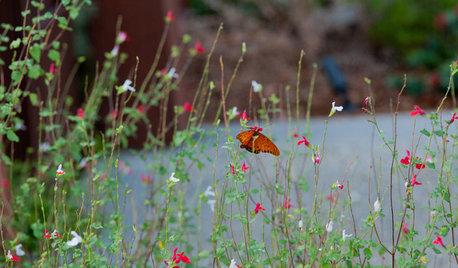
EARTH DAYCreate a Container Wildlife Habitat for Hummingbirds and Butterflies
Don’t let limited space prevent you from welcoming wildlife into your garden
Full Story
FARM YOUR YARDHow to Grow Vegetables in Containers
Get glorious vegetables and fruits on your patio with a pro’s guidance — including his personal recipe for potting mix
Full Story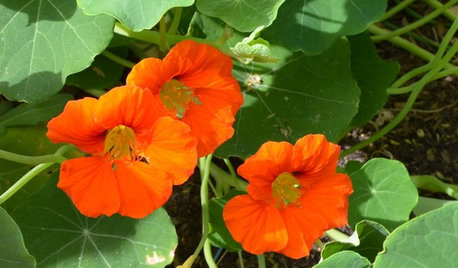
CONTAINER GARDENS7 Deer-Resistant Flowers for Your Summer Containers
Grow these as protection for edibles or just for their colorful beauty — deer might not like them, but everyone else will
Full Story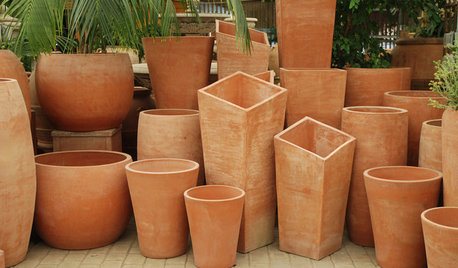
CONTAINER GARDENSBeat the Frost With Natural Terra-Cotta Containers
Here's how to protect your pots during the cold winter months
Full Story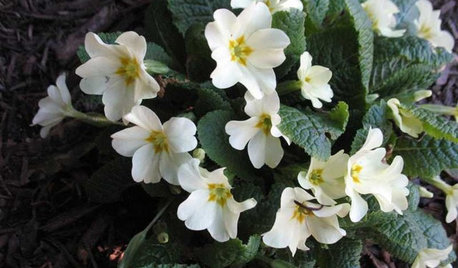
SPRING GARDENING7 Great Container Plants for Early-Spring Appeal
Good things sometimes come to those who impatiently head to the nursery for plants that can take a chill
Full StoryMore Discussions






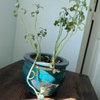

johns.coastal.patioOriginal Author
johns.coastal.patioOriginal Author
Related Professionals
Lowell Landscape Architects & Landscape Designers · Finneytown Landscape Architects & Landscape Designers · Blue Springs Landscape Contractors · Haverhill Landscape Contractors · Middleton Landscape Contractors · Munster Landscape Contractors · Shirley Landscape Contractors · Wallingford Landscape Contractors · Coachella Solar Energy Systems · Downers Grove Solar Energy Systems · Azalea Park Solar Energy Systems · Spokane Window Contractors · Manville Window Contractors · Sunrise Window Contractors · Independence Fence Contractorsthe_yard_guy
johns.coastal.patioOriginal Author
the_yard_guy
johns.coastal.patioOriginal Author
drew51 SE MI Z5b/6a
nil13
johns.coastal.patioOriginal Author
nil13
suncitylinda
drew51 SE MI Z5b/6a
JerryVentura Jordan
nil13
johns.coastal.patioOriginal Author
johns.coastal.patioOriginal Author
JerryVentura Jordan
johns.coastal.patioOriginal Author
johns.coastal.patioOriginal Author
drew51 SE MI Z5b/6a
JerryVentura Jordan
johns.coastal.patioOriginal Author
johns.coastal.patioOriginal Author
JerryVentura Jordan
johns.coastal.patioOriginal Author
nil13
johns.coastal.patioOriginal Author
johns.coastal.patioOriginal Author
Ernie
johns.coastal.patioOriginal Author
greenman28 NorCal 7b/8a
johns.coastal.patioOriginal Author
johns.coastal.patioOriginal Author
johns.coastal.patioOriginal Author
johns.coastal.patioOriginal Author
Ohiofem 6a/5b Southwest Ohio
johns.coastal.patioOriginal Author
drew51 SE MI Z5b/6a
nil13
nil13
johns.coastal.patioOriginal Author
johns.coastal.patioOriginal Author
nil13
johns.coastal.patioOriginal Author
nil13
nil13
johns.coastal.patioOriginal Author
nil13
greenman28 NorCal 7b/8a
ricman